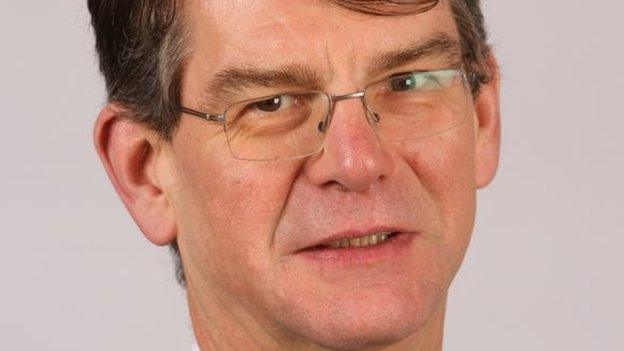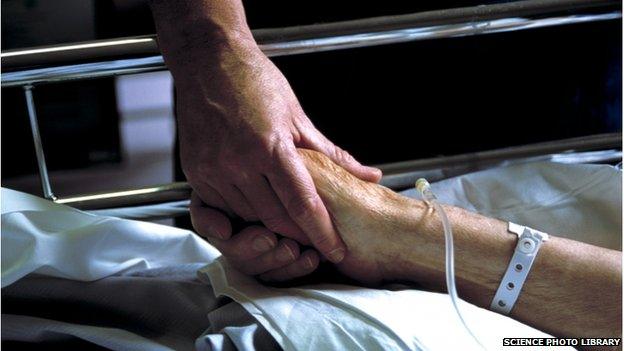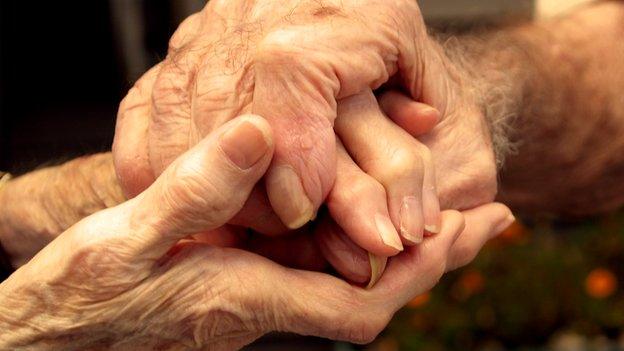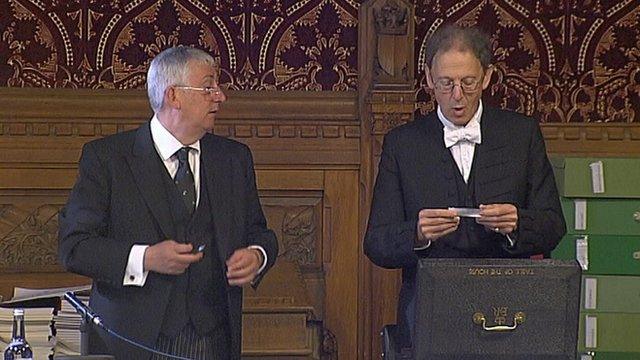Labour MP Rob Marris launches fresh 'right to die' bill
- Published

Rob Marris topped the annual ballot for private members' bills
MPs are to consider allowing some terminally ill people in England and Wales to end their lives in a fresh effort to pass "right to die" laws.
Labour peer Lord Falconer's bid to introduce legislation ran out of time before the general election.
Now Labour MP Rob Marris will attempt to steer a bill through the Commons.
The Wolverhampton South West MP won a private member's bill ballot last week guaranteeing time in the chamber for backbench legislation.
But the bill's chances of becoming law received an instant setback when Downing Street said it would not be given government time in the Commons.
David Cameron's view on assisted dying had not changed, said the PM's official spokesman and he was "not convinced that further steps need to be taken".
Mr Cameron was "concerned that legislation may push people into things they do not actually want for themselves", added the spokesman, but it was an "issue of individual conscience, for Parliament to decide".
Patients with no more than six months to live and who had demonstrated a "clear and settled intention" to end their lives would be prescribed a lethal dose of drugs on the authority of two doctors, under the proposed new law.
'Imminent death'
The bill is expected to be debated on 11 September. Mr Marris said it could give MPs the first vote on the issue since 1997.
He said: "The public are clearly in favour of a change in the law and it is right that Parliament now debates this issue.
"Alongside the vast majority of the public, I am in favour of terminally-ill people who are of sound mind having choice at the end of life.
"It is a choice that I would want for myself and I do not think we should be denying this to people who are facing an imminent death.
"The House of Commons has not voted on this issue for almost 20 years.

"While the prospects of getting the law changed are difficult without official government support, this is an opportunity to show we in Parliament are not ducking our responsibility to the public and I look forward to continuing the case for a compassionate assisted dying law."
'Compassion'
Campaigners in favour of a change in the law claim MPs can not ignore the fact that UK citizens are travelling to Swiss euthanasia clinic Dignitas or taking their own lives.
Sarah Wootton, chief executive of campaign group Dignity in Dying, said: "It is great news that the House of Commons will now begin a debate on assisted dying which the public demand but have been denied because of parliamentary procedure.
"I welcome Rob Marris's commitment to show compassion to dying people and give choice at the end of life."
Lord Falconer, now the shadow justice secretary, said he was grateful to Mr Marris for "continuing the campaign" to change the law.
But Agnes Fletcher director of campaign group Living and Dying Well, said the proposed law was open to abuse, with elderly or gravely ill people feeling pressured into ending their lives because they felt there were being a "burden" to their families.
Doctors also found it difficult to predict with accuracy how long someone had to live, she told BBC Two's The Daily Politics.
A private member's bill is one of the few chances ordinary backbench MPs get to create legislation.
The vast majority of new laws originate from the government of the day.
Few private member's bills become law due to the lack of time in the Parliamentary calendar and the annual ballot is always fiercely contested.
- Published10 September 2015

- Published26 May 2015
- Published12 June 2014
